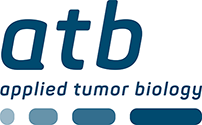Research interest
Our primary aim is to translate the research concepts and ideas that we investigate in our lab into clinical applications. As a big research group, we pursue this aim in different research directions.
We believe that unravelling the pathogenesis of cancer can help to design better therapeutic options for patients. We are particularly interested in immunological approaches for treating and even preventing cancer. Our research group develops innovative methods for treating precancerous lesions and thereby reducing cancer-associated morbiditiy and mortality.
HPV-Induced Disease
Human papilloma viruses (HPVs) cause widespread infections of the skin and mucosal surfaces and in some instances pre-cancer and cancer predominantly of the anogenital region and the oropharynx. About 5 % of all cancers that occur worldwide are accountable to persistent HPV-infections.
Research over the past 30 years revealed that the oncogenic activity of HPVs is mediated by two oncogenes (E6 and E7) that are required to induce and maintain their carcinogenic function.
ATB is actively studying the mechanism why these oncogenes become activated in distinct human epithelial cells. ATB further developed biomarkers to highlight such HPV transformed cells and is devloping therapies that block the activity and function of the HPV oncogenes.
MSI Cancers
Every living cell has a set of proteins constituting the DNA Mismatch Repair (MMR) system. The MMR system is responsible for correcting nucleotide mismatches occurring in the DNA during cell replication.
Short repetitive sequences, so-called microsatellites, are particularly prone to accumulation of such mismatches. Therefore, when the MMR system does not function, insertion-deletion mutations accumulate at microsatellites causing Microsatellite Instability (MSI) and leading to cancer development. MSI has dramatic consequences on the pathogenesis and immunogenicity of cancer cells, opening possibilities for immunotherapy and immune prevention of MSI cancers.
Glycoscience
Sugar molecules constituting glycans provide the proteome of cells with enormous diversity, thereby being capable of altering biological properties of proteins. In cancer, cells have a completely different glycan and glycoprotein profile, which can be used as basis for designing novel approaches for cancer treatment and diagnostics.
Moreover, due to high energetic demands, consumption of sugars also differs between cancer and normal cells. Cancer cells consume substantially more glucose, therefore glucose dependence represents the Achilles’s Heel of cancer and can be targeted by specific substances that inhibit metabolic pathways in cancer cells.

